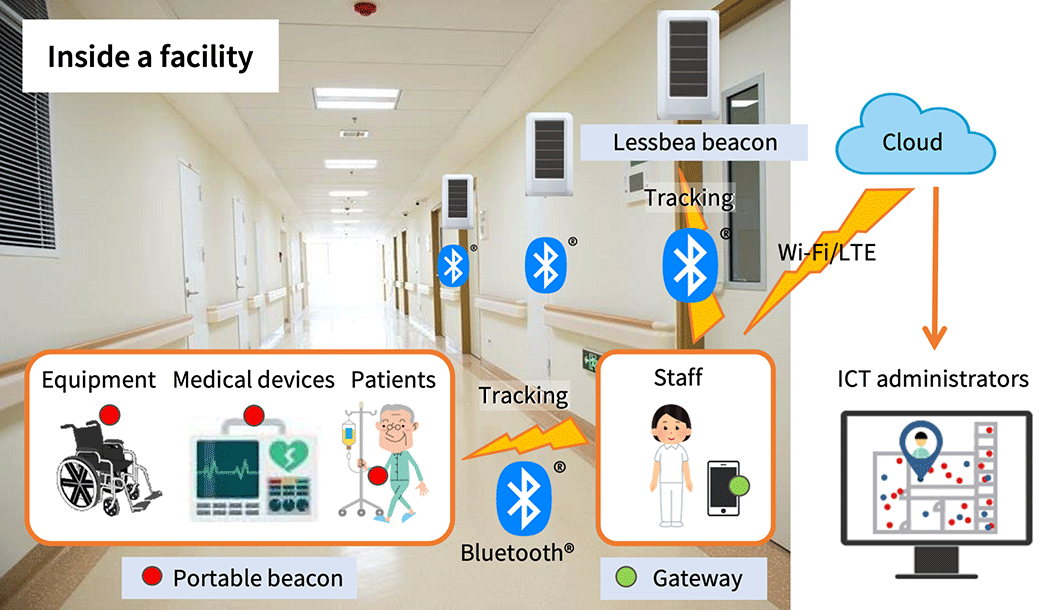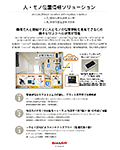Beacons Provide Solutions for Tracking People and Things (Reference exhibit)
Determine locations to better manage people and things and streamline work processes
Features
How can we streamline work inside facilities such as care homes and hospitals where staff have so many responsibilities? Sharp is working to this end by developing a system that chronologically tracks the locations of people and equipment. Lessbea battery-less beacons, which are attached to objects and worn by people, transmit signals that are managed on the cloud.
(1) Analyzes staff movement and accurately determines working time: Lessbea beacons installed in hallways and patient rooms gather staff location information for management purposes.
(2) Instantly determines location of equipment and devices to enable prompt action in case of emergency: With the small Lessbea II installed on things like portable devices and wheelchairs, their location can be determined via the cloud and staff smartphones.
In addition, location information can be determined without direct human interaction, thus helping to lower the risk of infectious disease transmission.

Identifies level of congestion in real time and displays alerts: Avoiding crowding means reducing infection risk.

Tracks movements of certain people or things: Can specify places or things requiring special response.

Lessbea offers reduced maintenance: No battery replacement required.
Streamlines work efficiency by knowing locations of people and things
Benefit 1: Locate people and things
- Manage labor, monitor movement
- Manage assets
- Analyze interaction (track path of infection)
- Identify crowding

Benefit 2: Minimize installation and operation costs
- No wiring required
- Maintenance-free operation

Gives graphical representation of infection risk
Real-time identification of level of congestion
Identify level of congestion in real time, and send out warnings or take appropriate action (display overcrowding alerts, limit number of people, ventilate spaces, etc.).

Identify infection risks (places, things, time of day)
Analyze movements of medical staff in the facility, identify infection risk, and take appropriate action (manage traffic flow, change locations, etc.).

Tracks infected people’s movements
Path logs can be created in order to carry out backward tracing of where infected people (medical staff) have been in the build
Can specify places and things requiring cleaning
Can track—and therefore disinfect—the places visited and the things used by infected people.

Identify people and things at risk from close contact
Analyzing where infected people have been and for how long makes it possible to track the things and people at the highest risk of infection.

Materials
Related Information











